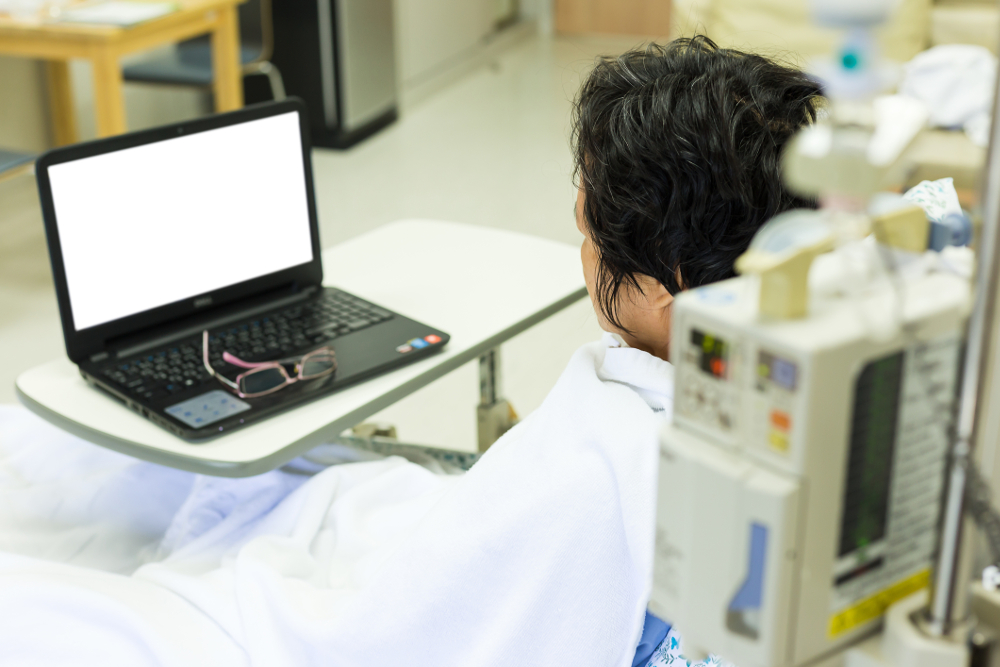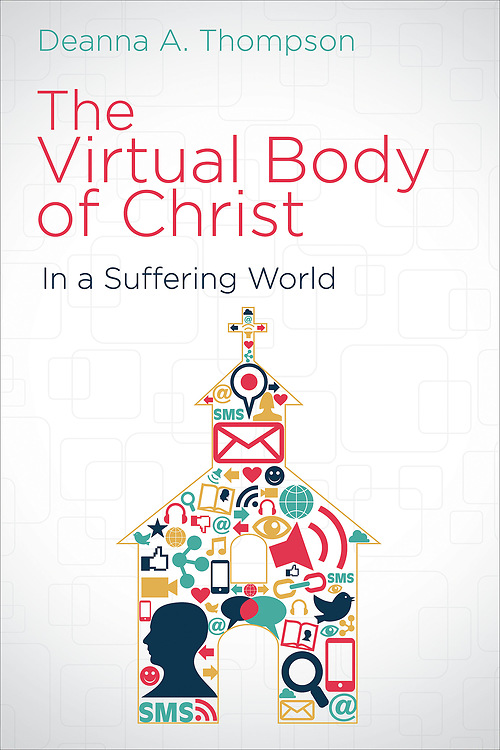
Dreamstime/Knunzphoto

There has been a sustained discussion in health care of the "research-to-practice gap." The challenge: Physicians, nurses, psychologists and others make wonderful scientific discoveries, but these discoveries are not easily translated to patients' bedsides where they will actually help those who suffer illness and injury.
It is rarely a life-and-death matter, but there is also a research-to-practice gap in the academic study of religion and theology. Lofty ideas and brilliant scholarly observations rarely result in tangible ways to help those who physically, spiritually and emotionally suffer.
Theologian Deanna A. Thompson has bridged this gap in her book The Virtual Body of Christ in a Suffering World. The author shows religious thinkers exactly how to take virtual Christianity to people in pain.
Thompson is both a skilled academic and a person who has suffered. She has written broadly on religion, theology and the examination of religion in a digitally connected world. However, she has also experienced the shock of being an active mother, wife and professor who was suddenly incapacitated with stage 4 metastatic breast cancer.
To stay in communication with family and friends, her family created a site at CaringBridge.org. This is a virtual network that helps people with serious issues keep in contact with those who care about them. In Thompson's experience, the site kept people informed of how she was doing, extended the spiritual support of prayer, and virtually connected a support group that brought the family meals and helped with other needs. She realized that the virtual connectedness of a website allowed her to be surrounded by a "cloud of witnesses greater than I could have previously imagined."
This book is essentially a conversion story. Thompson describes her journey from digital cynicism to a firm belief that virtual relationships can alleviate individual suffering. She predicts that today's expanding virtual networks will "push us to rethink the boundaries of the church local and universal."
The author's narration of her journey through illness evokes empathy, but never dips into self-pity. Her experiences are used elegantly to prove her assertion that virtuality is a continuation of reality, not a separate and opposing space.
She examines the work of writers who dichotomize physical versus virtual existence. Monographs and academic journals are full of arguments that predict the new digital age will either revolutionize or ruin Christianity. She surveys the promises and perils of digital religion, and doesn't summarily dismiss the warnings and criticisms. However, she argues against "technological determinism" — the idea that using a particular technology will guarantee either positive or negative outcomes.
Her pragmatic opinion is that technology is a tool, and "its ability to help make lives better or worse depends on how it is used."
According to Thompson, "It is in our nature to utilize technology (the pen, the book, the internet) to extend versions of ourselves and our world beyond our physical limits." She notes that the apostle Paul developed virtual relationships through his letters, which created the "virtual body of Christ."
She focuses on Paul's incarnational theology formulated in his first letter to the Corinthians: "Now you are the body of Christ, and each one of you is a part of it." From Paul onward, she argues, the growth and global maintenance of the church has relied on both physical and virtual communities.
She calls for contemporary Christians to "embrace the capacity of this virtual body to be the hands and feet of Christ in the world, most especially on behalf of those who suffer."
She writes, "Utilized effectively, virtual connectivity can help us better attend to the hurt that fills our lives."
Advertisement
She unflinchingly provides an example of this in her description of how chemotherapy and the physical injury precipitated by her illness caused even disciplined, well-meaning people to look at her differently. She writes, "There are times when the reflection of our broken bodies in the eyes and bodies of others is almost too much to bear."
She carefully explains that the physical presence of friends and loved ones provided strong support, but she learned that others' reactions to the diminished self can be "devastatingly painful even as we are grateful for the gift of physical presence with us in that awful space."
While in this "awful space" of physical brokenness, she was grateful for the virtual technology that allowed her self to extend beyond her body. "What I wrote and posted online still sounded like the me I was familiar with, the me that was not wholly overcome by the stigma and diminishment of advanced-stage cancer," she recalls.
Despite her support for virtual outreach, Thompson asserts that Christians are still called to be physically present for those in need. She knows that not all who suffer have access to online support, and certain physical illnesses or injuries, mental illness, and poverty are among the many limits to virtual ministry.
The book relies heavily on sociological research about "strong and weak tie networks." Strong-tie networks are composed of people we trust and who can help us through tough times. Some critics assert that social media networks are only capable of cultivating weak ties. Thompson counters that digital social networks are no less real or important than face-to-face relationships and that strong and weak ties in either realm work in complementary ways.
She agrees with critics who say that attentiveness is under threat in the electronic din of our digital age but notes that this is a challenge in physical life as well. She reminds readers that Christ heard and answered cries of suffering people even in the midst of noisy crowds.
The author sees the church as an answer, noting that Christian liturgical and meditative practices have long been used to cultivate attentiveness. Thompson calls for members of the "virtual body of Christ" to learn how to filter out the noise in our lives and, like Christ, be attuned to the calls for help in our contemporary world.
[Melissa Jones is an adjunct professor of liberal studies at Brandman University in Irvine, California.]





